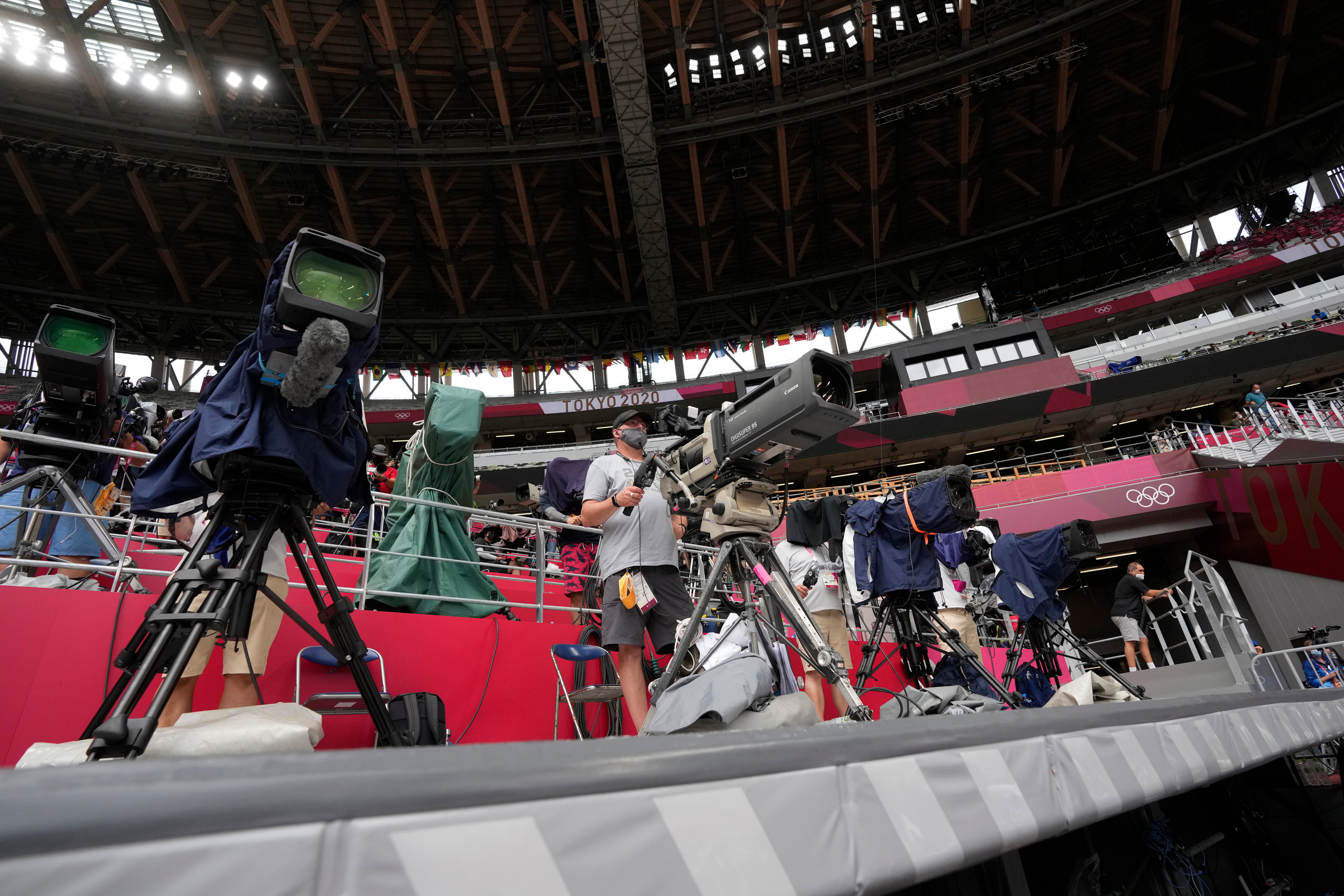Olympic attention to mental health: Can NBC coverage pivot?
The willingness of athletes, led by Simone Biles, to talk about the pressures they face as elite athletes on the Olympics stage, has forced a look at how NBC presents the Games to the public

If NBC s Michele Tafoya expected exultation or tears of joy from American swimmer Caeleb Dressel when she asked how it felt to reach his dream of an Olympic gold medal, that's not what she got.
He was happy, but hurting. “It's a really tough year,” he said. “It's really hard.”
Olympic athletes, most notably gymnast Simon Biles, haven't been afraid to express the mental and emotional difficulties they've faced during these pandemic games, a development that's thrown NBC a curve.
The network that presents the games has been forced to pivot, and the addition of Michael Phelps to its broadcast team turned into a master stroke for unanticipated reasons. Yet it's also worth questioning whether an intense focus on gold is out of touch for what these Games have become.
For most of the athletes, it has been an extraordinarily intense year. After training with the goal of being ready in 2020, the Games' postponement to 2021 — and the pandemic that caused it — forced them to decide if they wanted to essentially put another year of their lives on hold for what is often a lonely quest, said Mark Aoyagi, coordinator of the Sports and Performance Psychology program at the University of Denver.
Then they traveled to a lockdown environment to perform without their friends and family present; indeed, they had hardly any audience at all.
That strain was evident when NBC connected Dressel with his parents, wife and sister at home for a conversation shortly after his swim. He started sobbing.
In its coverage, NBC should make it a point to talk to athletes about their mental, not just physical, preparation for the games, said Hillary Cauthen, a sports psychologist from Austin Texas who is on the executive board of the Association for Applied Sports Psychology.
“We need to lean into this conversation,” Cauthen said.
Between cable networks and streaming, NBC Universal peeks into every corner of the Olympics. By far, though, NBC's prime-time coverage is the window through which most Americans experience the Games, and that is primarily focused on the medal hunt by American athletes in gymnastics, swimming & diving and track & field.
By its very nature, the Olympics are an athletic competition. There are winners and losers, dreams fulfilled and dreams dashed. While many athletes thrive in that environment, Biles' decision to pull out of the team and all-around gymnastics competition is the most prominent sign that for some, the pressure takes a toll.
Not many television viewers realize that a large number of competing Olympians understand they have no realistic expectation of winning a medal. For them, simply coming to Tokyo and competing is a joyful accomplishment, Aoyagi said.
“We never see that story,” he said. “Obviously, NBC highlights those that are in medal contention. It's a very cultivated story that is presented to people that doesn't capture the essence of why most of them are over there.”
Molly Solomon, executive producer of NBC's Olympics coverage, objects to any characterization of the network's philosophy as simply winner takes all.
“We always celebrate winning a silver or bronze and the achievement of being an Olympian,” Solomon said. “That's our foundational philosophy, our ethos. If you listen to the tenor and tone of our comments in the opening ceremony, we talk about for so many of the Olympians, that simply being at the Games is their crowning achievement."
For NBC Universal, the Olympics are a multibillion-dollar business, and the company needs stars to entice viewers. That put athletes like Katie Ledecky and Biles in an intense spotlight, and the gymnast's decision not to compete has likely contributed to the network's disappointing ratings thus far. American Sunisa Lee's victory in the women's gymnastics all-around competition on Thursday offered a boost.
For Biles, the attention turned her from a woman chasing her own dreams to America's great sports hope.
“We just have to have a grace and kindness to understand what they're going through,” Cauthen said.
NBC's Olympics host, Mike Tirico, noted in a commentary that Biles' story and the focus on mental health didn't fit into society's desire for instant results and a willingness to criticize athletes who don't live up to expectations.
“Maybe this helps the rest of us understand that even though they crave and create a lot of the attention, sometimes what we know them for and what we admire them for is not the most important thing,” he said.
NBC hired the 23-time gold medalist Phelps primarily to add context to its swimming coverage. Instead, Phelps' activism and willingness to talk about his own mental health issues has provided a crucial element to NBC's Biles coverage. Phelps said he understood how Biles felt she carried the weight of the world on her shoulders, since he felt it, too.
He'll keep talking about the issue, Solomon said.
___
David Bauder is the media writer for The Associated Press. Follow him on Twitter at https://twitter.com/dbauder. More AP Olympics coverage: https://www.apnews.com/OlympicGames and https://twitter.com/AP_Sports
Bookmark popover
Removed from bookmarks